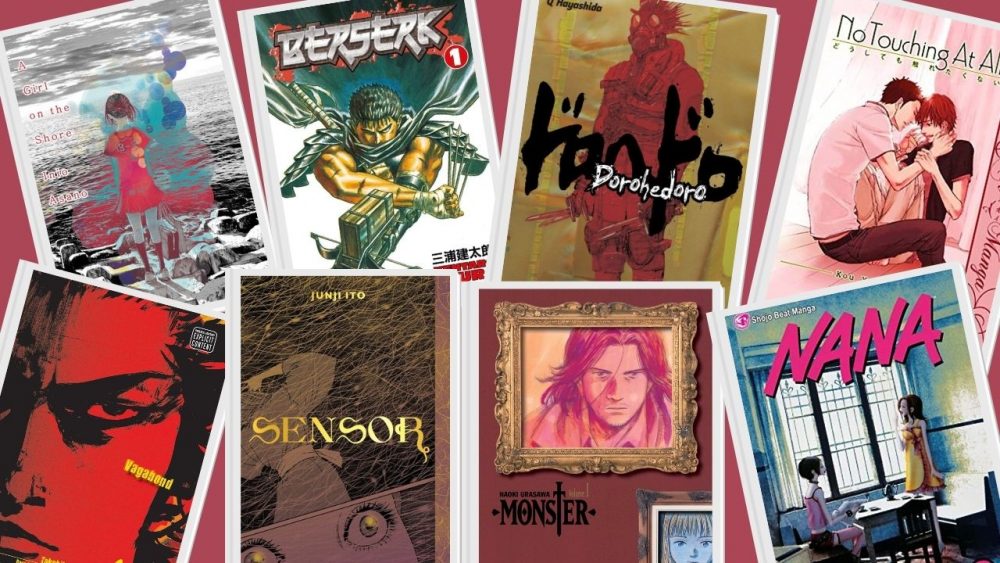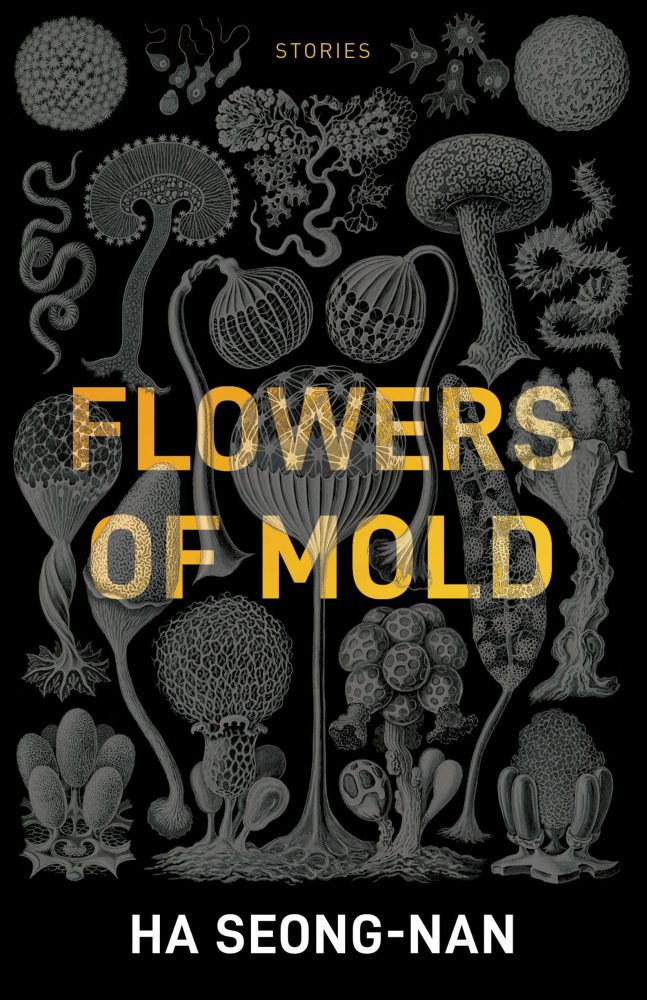So much of our experience with a novel relies on its narrator and its protagonist. When we read, we both apply our understanding of the world to the novel, and seek to put that aside to look through the narrator’s eyes.
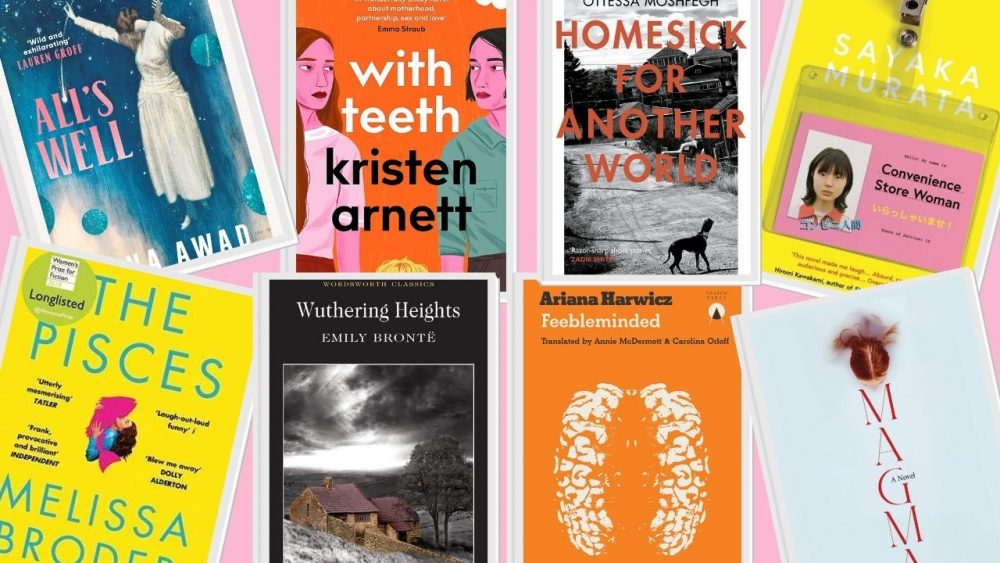
Most protagonists and narrators feel trustworthy, pleasant, and kind; even if that protagonist has faults and shortcomings, they generally fit into our notion of what a person “should” be. The popularity of this character type makes books with unlikeable protagonists difficult to get along with.
There is no reason to question their motives, find them frustrating, or believe they are misguided. However, sometimes our own worldviews clash with a protagonist’s, and we begin to find things about the narrator that are unappealing. This often makes for an unlikeable protagonist.
Brilliant Books with Unlikeable Protagonists
Books with unlikable protagonists force readers to confront our own worldviews; they challenge us to consider why we find these protagonists so unlikable.
Are we applying preconceived standards and societal expectations to a character, or are we actually attempting to understand their views? Is the character just unlikable in a universally understood way? If so, how and why did we come to that conclusion?
These novels from Iceland, the United States, Japan, Argentina, the UK, and beyond are all books with unlikeable protagonists, and all feature them in distinct ways, and challenge readers to examine our expectations of others.
Magma by Thora Hjörleifsdóttir
Translated from the Icelandic by Meg Matich
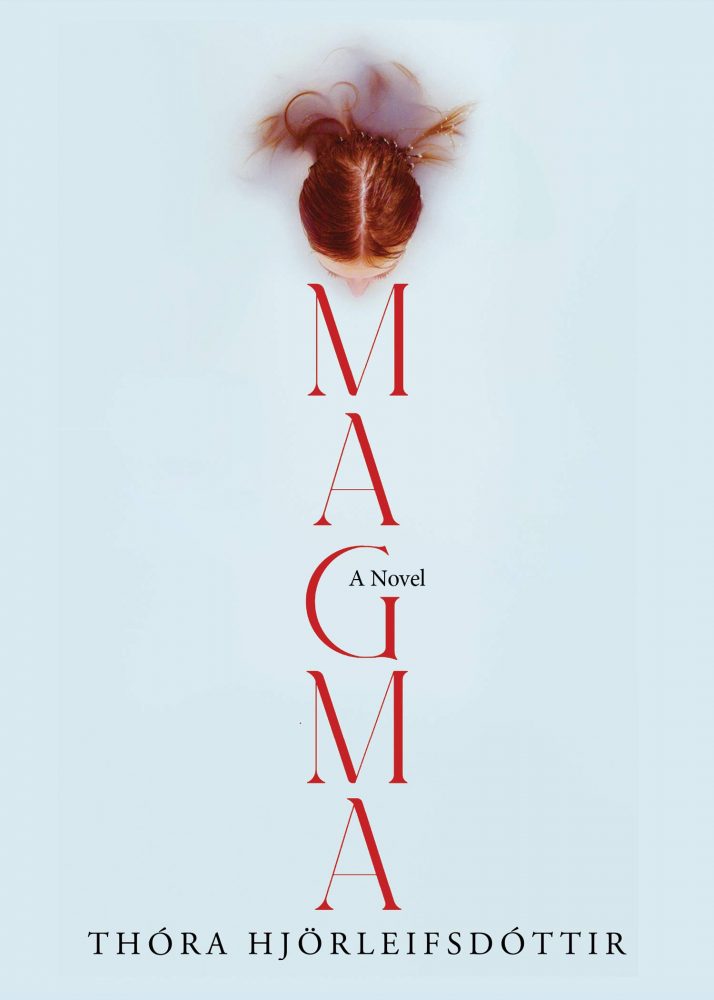
Magma follows the crumbling relationship between Lilja and her partner, who is referred to simply as “he.” Over the course of the book, we watch his manipulation and abuse of Lilja escalate, and while we have the distance and vantage point to recognize that he is in the wrong, Lilja does not.
The characterization of Lilja uses almost every stereotype about abusive relationships; each tactic of manipulation she endures is textbook abuse.
Through Lilja’s narration, we get a look at her twisted self-image and her tendency to find herself at fault for everything that happens to her, and we feel helpless and guilty along with her. Lilja is unlikable because of her complete inability to see her situation for what it is.
She is trapped in an endless cycle of blaming herself, trying to change the dynamic of the relationship, deciding to leave, and going back, making Magma a textbook example of books with unlikeable protagonists, while still having so much of our pity.
Though infuriating, this use of clichés was purposeful and carefully crafted. Hjörleifsdóttir asks readers to reexamine why we become increasingly frustrated and annoyed with our narrator throughout the novel.
As the abuse reaches new heights, the reader’s frustration mounts, thus the degradation of Lilja’s mental health corresponds to an escalation of our annoyance. This brief, poignant novel asks its readers to move the blame and frustration to “him” instead of Lilja, and to see her as more than a paper cut-out of a battered woman.
All’s Well by Mona Awad
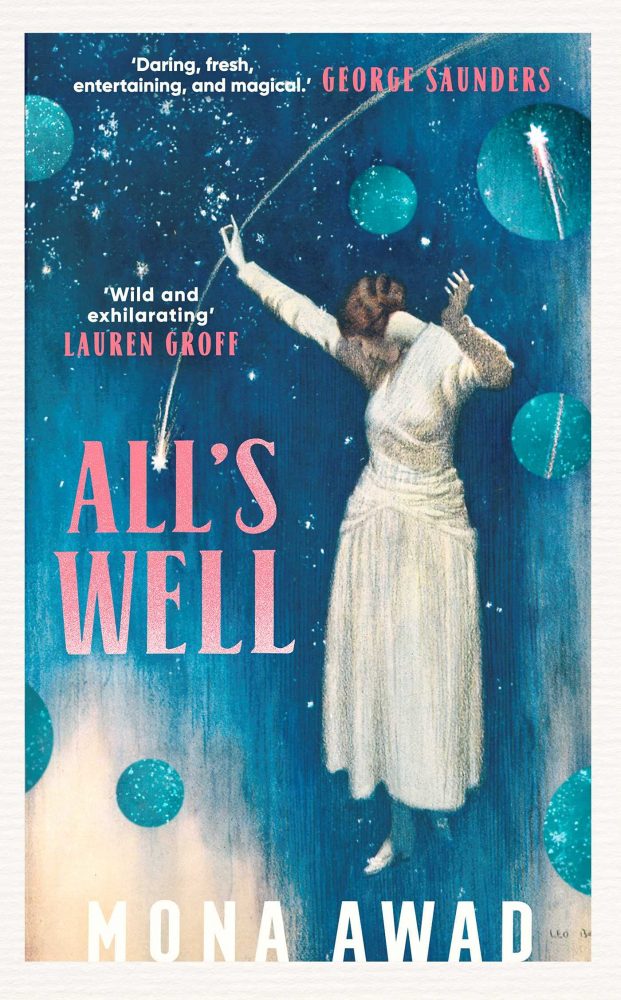
All’s Well is a thrilling and twisted novel narrated by Miranda, an actress turned college theater director, after a major injury debilitates her.
Awad uses elements of magical realism and fantasy to create confusion and disorientation for both Miranda and the reader. Though the novel is strange, darkly comedic, vibrant, and entertaining, a significant portion of the narration focuses on the theme of Miranda’s experience with pain and injury.
Miranda’s background in acting informs her every thought and action, and she views her pain as a kind of performance, making for an interesting example of books with unlikeable protagonists.
In order to maintain her relationships, she must outwardly express enough pain to garner sympathy, but never enough pain to make others uncomfortable. Interestingly, Miranda’s own understanding of how debilitating pain is does not extend to others; she sees other people who are in pain as weak or as fakes.
Miranda’s unlikable qualities as a narrator are two-fold; she seeks the sympathy and approval of others so incessantly, yet she others and shames anyone else who is in pain. In a subtle and clever way, Awad asks readers to reexamine how we look at chronic pain and illness, and how we expect people with these conditions to behave.
Miranda’s character embodies our internalised tendency to disregard people with invisible illnesses or chronic pain, and how society neglects and ostracises them.
Convenience Store Woman by Sayaka Murata
Translated from the Japanese by Ginny Tapley Takemori

This brief Japanese novel follows our narrator, thirty-six-year-old Tokyo resident and convenience store worker, Keiko Furukura. Keiko has never worked outside of the convenience store, and she is perfectly content as a cog in the capitalist machine, with all of the stability, conformity, and predictability it affords.
Keiko faces judgement from everyone in her life, from her family to her coworkers at the convenience store, for her lack of interest in and drive to obtain the traditional milestones in life. She is not interested in things like marriage, having children, a prestigious education, or a distinguished career.
To some extent, she may even face judgment from the reader. In simplest terms, Keiko is unlikable because she does not fit with our preconceived notions of a “successful” person.
Unlike with more likeable, relatable narrators, the style of narration in Convenience Store Woman feels cold and detached, making the reader work at understanding and connecting to Keiko. While rewarding and smart, it remains one of the most biting books with unlikeable protagonists.
Through Keiko, Murata comments on the transactional nature of our view of other people; change and self-improvement equal upward momentum, which equals success, which equals value.
Keiko’s contentment with her world challenges the reader to see the value of a human being as intrinsic and equal to others, instead of basing it on the person’s overall contribution to the demands of society.
The Pisces by Melissa Broder
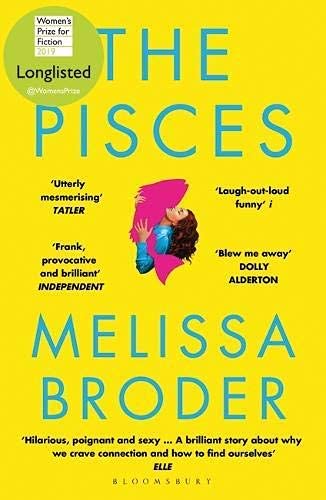
The Pisces is a lot of fun. It is sexy, strange, discomfiting, surreal, and shocking (to say the least). A lot of this shocking impact comes from just how unlikeable Melissa Broder’s protagonist is.
For a lot of modern readers, if you ask them to point to one of the most famous books with unlikeable protagonists, they’ll likely point to The Pisces and its protagonist, Lucy.
Lucy has been living in Phoenix AZ, but now she is newly single and at a loss concerning her PhD dissertation. And so, she takes up an offer from her rich sister to housesit that sister’s home an on Venice Beach, Los Angeles, complete with dog.
Lucy goes on a screwing spree, hooking up with horrible men and getting into uncomfortable sexual situations. Soon enough, however, she meets a man named Theo swimming out just beyond the shoreline. Theo turns out to be a merman, and Lucy soon finds herself in love with him.
The things Lucy does to herself, to her sister’s home, and to the dog, all for the sake of lust and making herself feel better, makes The Pisces queen of the books with unlikeable protagonists. Lucy also needs to get her mental health sorted, and won’t, adding frustration to the unlikeable cocktail, alongside selfishness and crassness.
Homesick for Another World by Ottessa Moshfegh
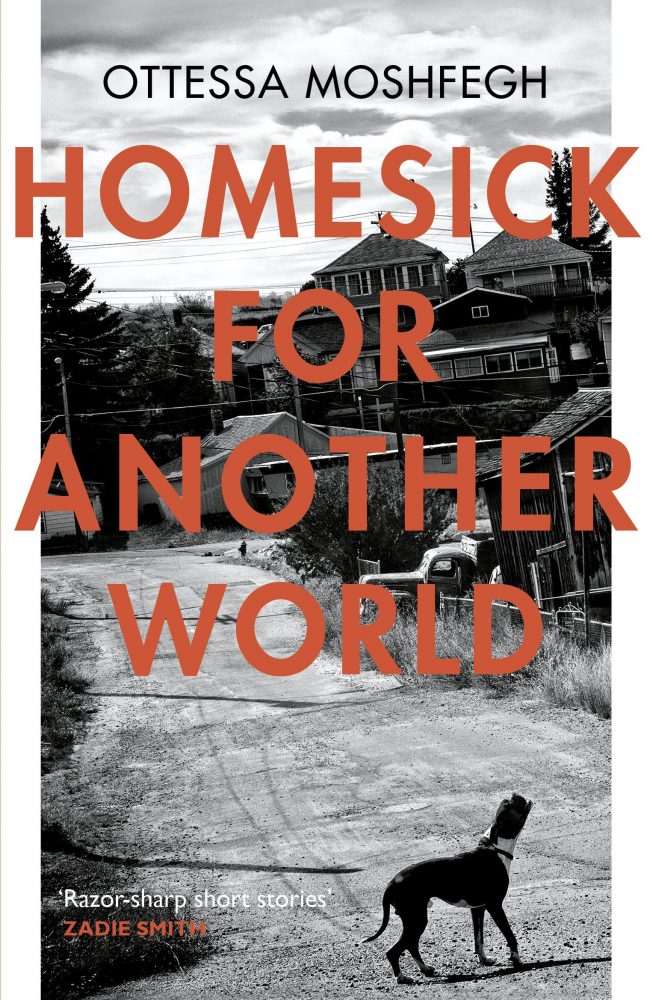
Moshfegh’s work is full of unlikable narrators, and this short story collection is no exception. Most, if not all, of the narrators within this collection are unlikable, and often morally grey, in distinct ways. This collection tackles representing the more unpleasant and uncomfortable parts of humanity.
Moshfegh is unafraid of exposing the grotesque and creating characters that are disturbing, sometimes bordering on sinister. While her characters are superficially unlikable and often socially deviant, they also represent truths about humanity that can be hard to swallow.
In some ways, Moshfegh’s characters are unlikable because they’re too relatable; the depictions of loneliness, low self-esteem, and social ineptitude highlight the parts of ourselves we bury deep down.
Raw, visceral, and ruthless, Homesick for Another World plays with our perception of traditionally deviant behaviour, and asks readers to see beyond the characters’ actions to the feelings and insecurities beneath them.
With Teeth by Kristen Arnett
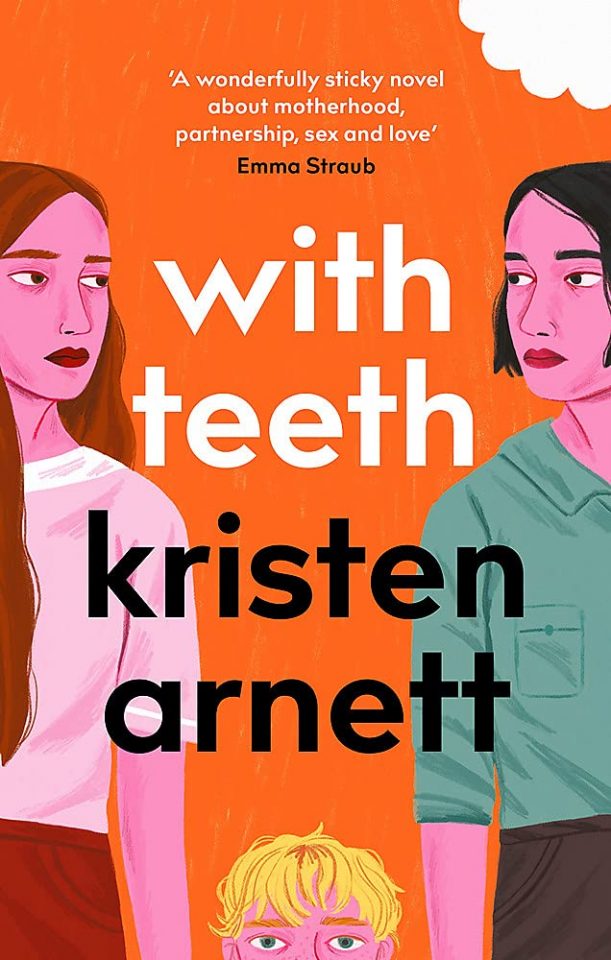
With Teeth follows Sammie, a wife and mother in central Florida who we watch struggle with parenting and connecting with her son Sampson, and sustaining a happy relationship with her wife Monika.
Queerness and queer family dynamics are a large part of this novel; Arnett seeks to represent queer families as regular families with the same struggles and trials, while taking care not to erase their queerness in the process.
Sammie’s unlikeability as a narrator is multifaceted, but the most striking reason is her complete lack of sentimentality about motherhood and her son Sampson. She continually reminds herself that he came from her body and that they do, in fact, belong to each other.
She doesn’t seem to think of or treat Sampson, who has always been a “problem child” in Sammie’s eyes, with any more tenderness than she might treat anyone else who was causing her stress and hurt. She is also unable to own up to her faults, and how she contributed to her marital problems and challenges with her son.
With Teeth presents the reader with a very frustrating main character who refuses to see how her actions and bad decisions have shaped her son.
But through her, the novel points to the pressures on queer parents to prove themselves as capable of raising children, as their actions are scrutinised and used as ammunition against gay couples pursuing parenthood.
Feebleminded by Ariana Harwicz
Translated from the Spanish by Carolina Orloff and Annie McDermott
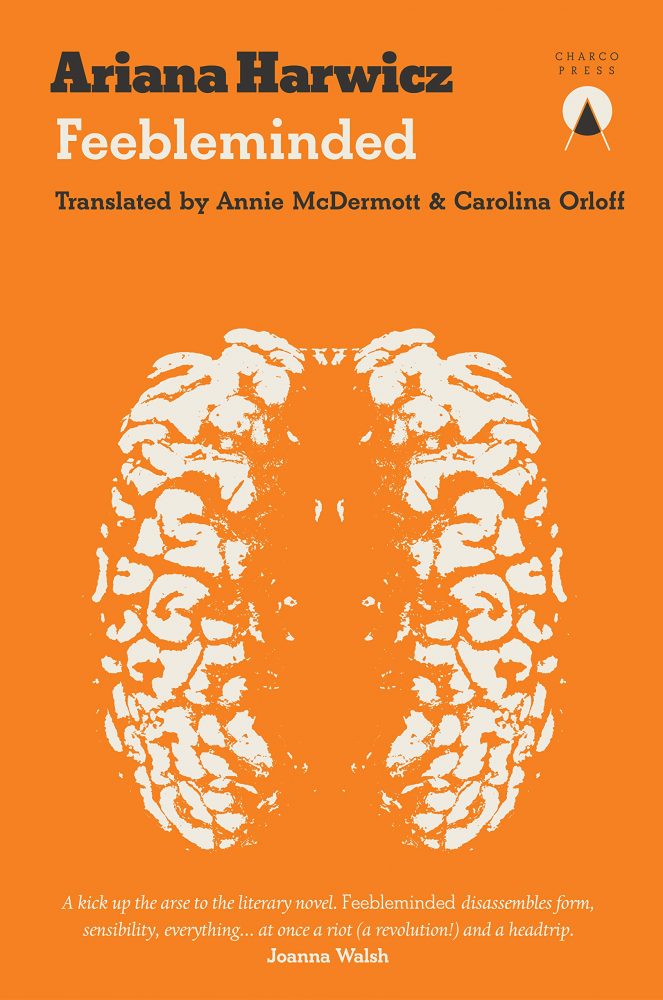
Feebleminded follows the toxic relationship of a mother and daughter, whose attachment has only served to push them both to the fringe of society. This character driven novel is told from the daughter’s point of view, and lets readers delve into her most morbid, disturbing fantasies.
Mother and daughter enable each other’s deviance and substance abuse, and fuel each other’s despondency. Our narrator only ever feels more reliable and put together when she has time and space away from her mother.
Her lack of reliability coupled with her negative treatment of everyone around her makes her incredibly unsympathetic. Although it is easy to become frustrated with the narrator and focus exclusively on her bad behaviour, Feebleminded has a lot to offer in terms of elucidation.
Carefully crafted passages which reveal past traumas for both mother and daughter are interspersed throughout this brief and disorienting novel, creating context for their current lifestyle and dependence on each other.
Harwicz suggests a kind of trauma bond between the women, and speaks more broadly to the realities of generational trauma.
The behaviours our narrator exhibits are ultimately a result of her mother’s trauma, in a seemingly endless cycle of suffering. Feebleminded seeks to show readers the underlying reason for the narrator’s unlikeability through stunning, brutal, and disturbing depictions of the broken bond between mother and child.
Wuthering Heights by Emily Bronte

Emily Brontë’s only novel, Wuthering Heights is a gothic masterpiece; a classic of 19th Century English literature. It is also one of the most iconic books with unlikeable protagonists. The infamous Cathy and Heathcliff, broken and damaged lovers doomed to an ugly fate, are also deeply ugly and unlovable people.
It is a popular issue with Wuthering Heights amongst first-time readers of this classic novel: its entire cast of characters is unlikeable. The villains are villainous, of course, but so are the heroes. Heathcliff begins as an outsider, bullied and ignored, but he grows into a bitter, selfish, toxic and rich adult, friendless and alone.
Cathy is innocent and naive, but also selfish and imprudent; she is rude and inconsiderate. Both our lovers are toxic, alienating, difficult, and venomous people. That, however, is the fun of this novel. Wuthering Heights is a raw and ugly piece of gothic literature and one of the best books with unlikeable protagonists ever written.

